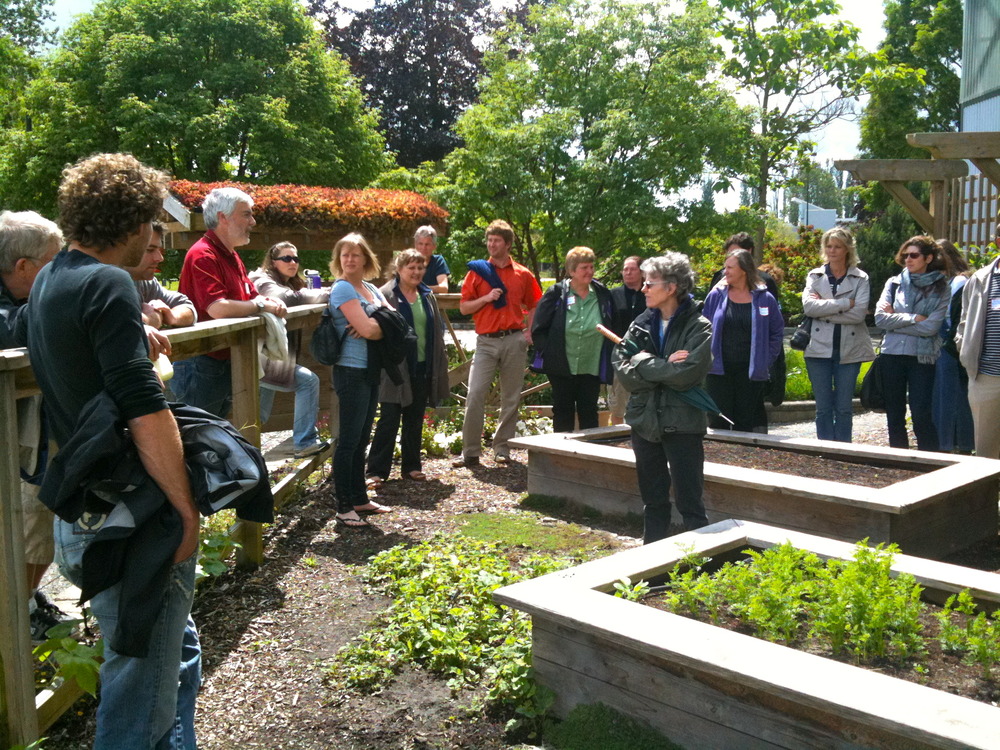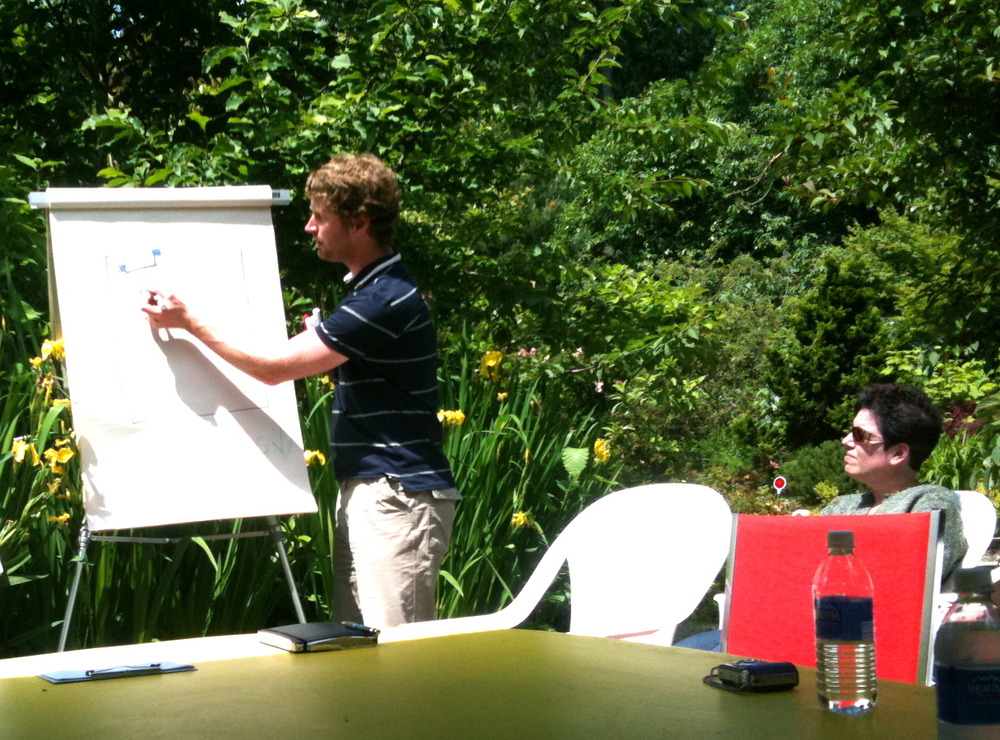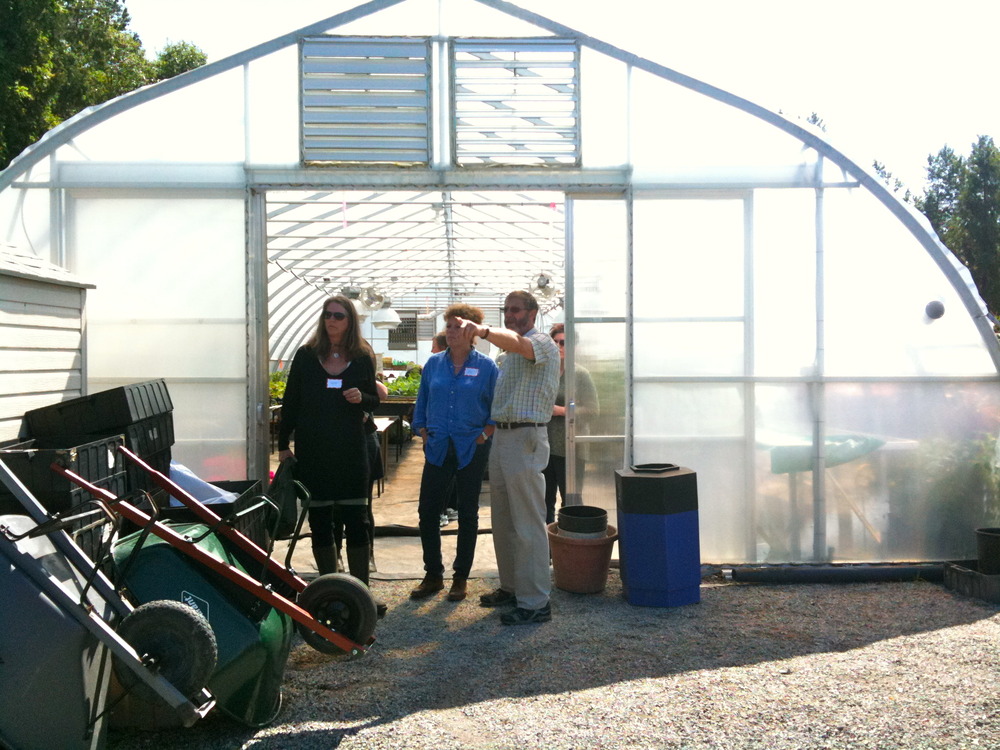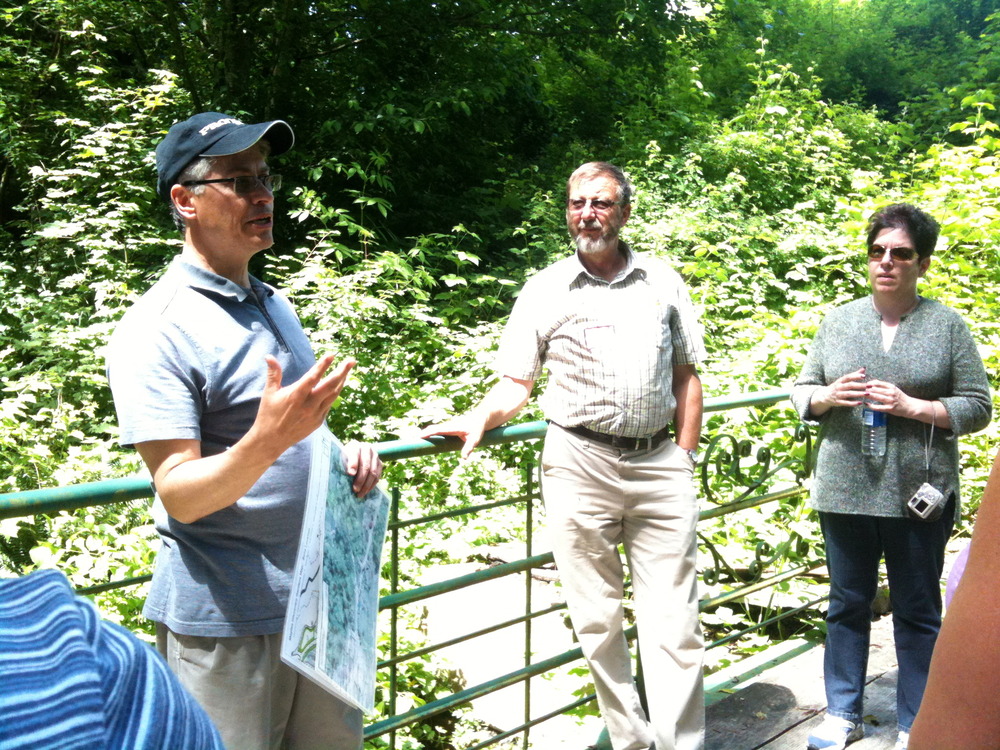This weekend, Chris and I attended a two-day course on introductory permaculture principles and design concepts. The course was taught by Adrian Buckley of Big Sky Permaculture (a Calgary-based permaculture company). Day 1 of the course was spent in a classroom at Kwantlen College’s Langley campus and included a tour of their horticulture/ growing spaces. Day 2 was spent in a greenhouse and on the grounds of the absolutely magical Maple Discovery Gardens in Langley. (Separate blog post coming on Maple Discovery Gardens and what they’re up to there).
The course was great. A number of the theories and principles we discussed were things that I was already familiar with, but the course provided me with a more thorough foundation than I’d previously received from random google searches and YouTube video viewings. Particularly helpful and AWESOME were the lessons in land planning. It was like interior design for land (and we all know how much I love interior design!). Okay, okay – kind of like interior design, but a little more complicated than the kind of interior design projects I take on…
There are a lot of details that I could repeat from the course here, but rather than listing everything I learned, I’m going to break topics and concepts into separate blog posts. Time to make this blog a little more technical and informational (alongside our fun stories and photos).
To start though, for those of you who aren’t familiar with permaculture, the basic premise of it is this:
Permaculture is a philosophy of working with nature – allowing systems to demonstrate their own evolutions.
It includes three basic principles: 1) care of earth, 2) care of people, and 3) return of surplus. Rather than just focusing on sustainability (meeting the needs of the present without compromising the needs of the future), permaculture focuses on regeneration. It emphasizes becoming a producer instead of a consumer and modelling our efforts on the cycles we see occuring naturally in nature. When practiced and carried out correctly (noting that there are many ways it can be done), permaculture results in small pieces of land creating high yields of food, water and other energy sources while regenerating the soil, water, plants, insects, animals and humans that use it.
More details and examples and permaculture farm projects coming soon!



